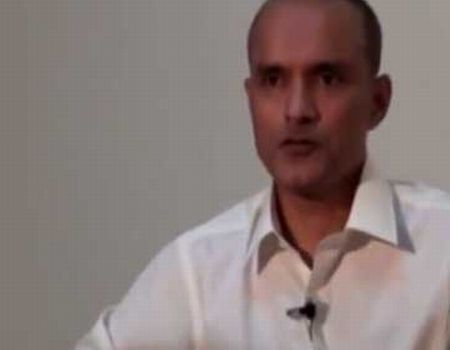'A key Indian diplomat who participated in the April 26 foreign secretary talks told me that the Pakistani side was determined not to yield an inch on key Indian demands,' says Rajeev Sharma.
 The Pakistani diplomatic establishment has acquired a spring in its steps as far India is concerned.
The Pakistani diplomatic establishment has acquired a spring in its steps as far India is concerned.
This was apparent in the April 26 talks between the two countries' foreign secretaries who merely went through the motions as the Pakistani side took a maximalist position on every key Indian demand which made a forward movement virtually impossible.
There are two reasons for the Pakistanis' cockiness and the chances are that on account of these two reasons Islamabad will continue to play hard ball with New Delhi in the immediate future.
The two reasons are:
- The Kulbhushan Jadhav episode;
- China's increasingly all-round solid support to Pakistan.
A key Indian diplomat who participated in the foreign secretary talks told me that the Pakistani side had come determined not to yield an inch on key Indian demands of a reciprocal visit to Pakistan by the National Investigation Agency and a credible action taken report by Islamabad on major terror strikes in India, particularly 26/11 and Pathankot.
At the talks the Pakistani side kept harping on the Jadhav issue, the alleged Research and Analysis Wing spy, above, who was arrested from within Pakistan. Obviously, the Indians vehemently denied the Pakistani version of events leading to the former Indian naval commander's capture. But the Pakistani side stuck to its guns.
Pakistani diplomatic missions in the West and the Islamic world have gone on an overdrive in recent weeks, telling these nations how India is unleashing terror against Pakistan.
It is a complete role reversal. From the aggressor, Pakistan has suddenly become the victim. The Jadhav episode has given Pakistan a weapon to bash India. This takes care of Pakistan's politico-diplomatic strategy.
As far as Pakistan's economic strategy is concerned, the China Pakistan Economic Corridor is a pivot.
The Pakistan government has been worried about its economy and the fact that practically zilch has come by way of FDI into the country. After all, which foreign company or nation would invest in a country as volatile and unstable as Pakistan!
The CPEC is seen as the magic mantra for all of Pakistan's economic woes. Haven't the Chinese promised to pump in $43 billion as part of the CPEC project?
By riding on the CPEC bandwagon, Islamabad believes all its economic problems will be sorted out, jobs will pour in and Pakistan will become a land of milk and honey.
To sweeten the deal for Pakistan, the CPEC project has strategic dimensions as the corridor will pass through Pakistan occupied Kashmir, which will not only bring prosperity to the region but also tighten Pakistan's grip over PoK.
Pakistan may err though in laying all its hopes on the CPEC considering that it is not a done deal yet and China's current economic condition is far from rosy.
The Jadhav episode and the CPEC are currently Pakistan's trump cards in its dealings with India.
It's time the Modi government comes up with a matching response to Pakistan's anti-India game plan. It should not matter if this is done overtly or covertly.
Rajeev Sharma is an independent journalist and strategic analyst who tweets @Kishkindha











 © 2025
© 2025